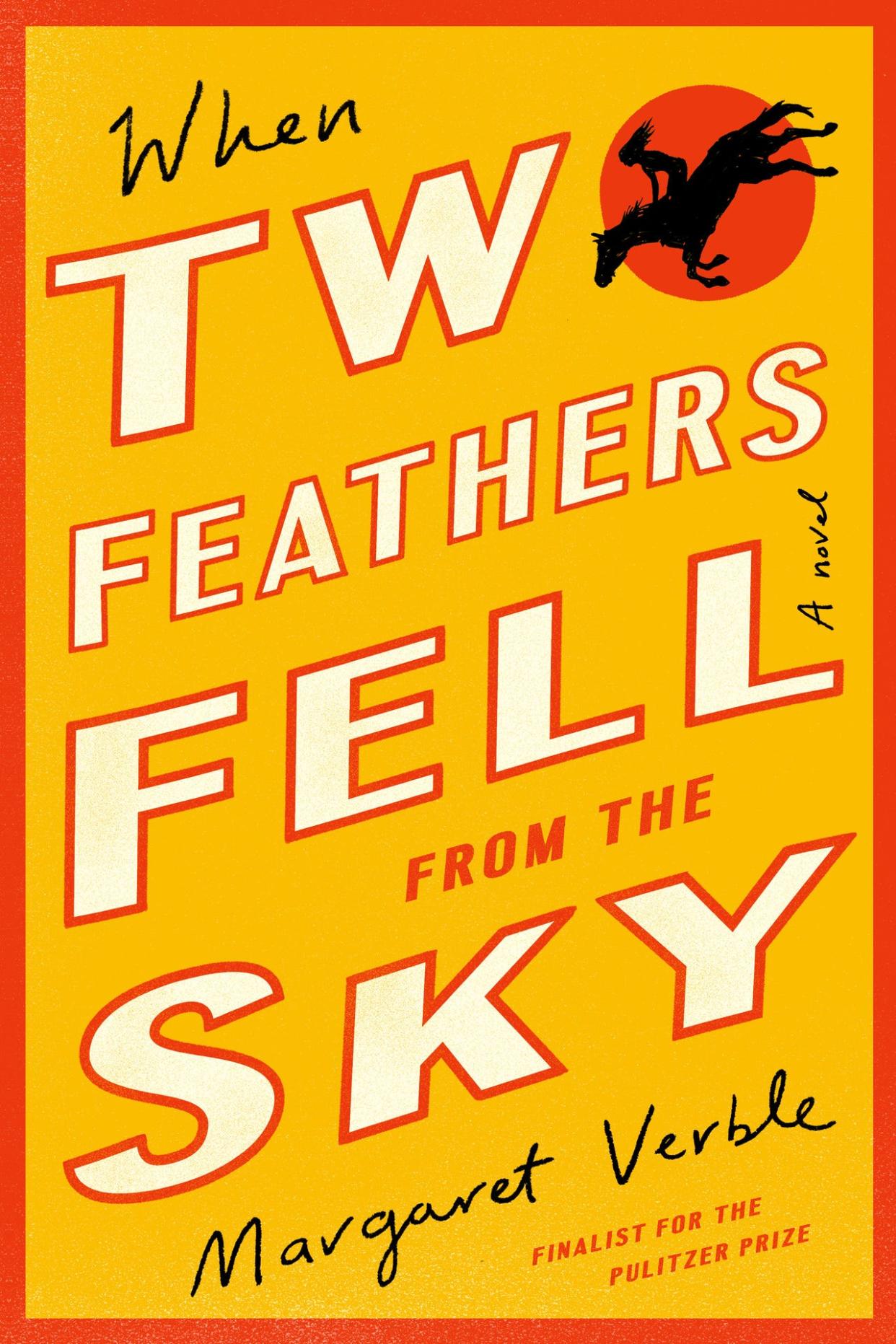How ghosts haunt — and comfort — the characters in this year's One Read

Editor's note: Each Sunday in September, Karena Tse of Daniel Boone Regional Library will explore a different aspect of this year's One Read title, "When Two Feathers Fell From the Sky" by Margaret Verble. Columns may include spoilers.
“We get the world we have, not the one we want. But we can make this one better.”
These words are uttered over a dead body in the final pages of Margaret Verble’s "When Two Feathers Fell from the Sky." It’s hard to describe the significance of the statement — it seems to contain the story’s soul.
What prompts Two Feathers to say such a thing? She doesn’t get many profound lines; most of her revelations happen in her internal monologue. Maybe it’s the gravity of the moment, standing over a desecrated Native American grave, accompanied by Clive Lovett.
This isn’t the first time the two characters have met in darkness, in some spiritually liminal space. After Two’s disastrous fall at the story’s start, Clive is the one who finds her on the other side of the sinkhole and keeps her company while they wait for rescue.
Of course, they weren’t alone then, and they aren’t alone now. In the cave after the fall, an anxious Clive is visited by the ghost of his cousin Millwood.
Millwood arrives, steadying and comforting in white light, dressed in the soldier’s uniform Clive wore alongside him so many years ago. They sing a song together, an old one from the war:
They’re over us, they’re over us.
One shell hole for the four of us.
Thank your lucky stars there are no more of us.
So one of us can fill it all alone.
This verse evokes the image of filling a grave — a chilling motif that is raised again months later in another scene between Clive, Two, and some nonhuman third party. Whereas the first instance involves something coming to life, the second involves putting something to rest.
That “something” being laid to rest is Jack Older: stalker of Two, murderer of zoo animals, robber of graves and fount of sexual rage. When Clive and Two find Jack’s dead body, they choose a hiding place, unknowingly returning him to the very grave he robbed just weeks before.
The burial is hard on Two. She finds herself doing the thing she is always avoiding — thinking about the dead: “They dug up these people like they were potatoes,” she says, considering the skeleton of the Native American, stripped of his belongings, denied dignity, even in death.
We get the world we have: one haunted by white supremacy, by violence, by war, by oppression. And when I say “haunted,” I am not suggesting a faded legacy or a closed wound. I am describing an active replication of injustice, from generation to generation.
There is another type of haunting worth talking about — the kind that protects rather than destroys. It’s the disembodied voice of Two’s grandmother, guiding her through a smudging ritual in a moment of hopelessness. It’s Little Elk, the ghost of a young Cherokee warrior watching over Two and keeping evil at bay. It’s the spirit Two feels in creeks, springs, rivers, and rocks: “She sensed some places were sources of strength, others were haunted.”
The past makes demands of us. It can threaten to drown us. (This, I believe, is why Two turns away from matters concerning the dead; why she steers clear of the graves that Glendale was built upon while others seek them out — it is not apathy, but fear and recognition of the past’s power over us that makes her keep her distance.)
The past also bolsters us. It sings us a song when we’re scared. It offers a source of ancestral strength in the face of fear. Consider this gorgeous moment, before Two’s first and only horse diving scene in the book:
“She turned her back to the crowd. Pictured an oak, strong, enduring, and rooted in the earth. Pictured the Salt Fork, flowing with grace and power. She conjured up the 101 buffalo herd, moving over the prairie into the sunset. And, finally, she called up the beaver, the persistent, strong swimmer and survivor. She collected her powers and moved to the ledge.”
By the end of the summer, everything has changed. Two has likely dived for the last time; her beloved horse Ocher has been left to decompose where he fell through the earth; and there has been a murder at the zoo that no one can explain. And yet, at this grave with Clive, still wearing a boot on her injured leg, Two feels something like hope.
It’s hard to know exactly what Two meant when she said we could make our world better. Such sweeping optimism isn’t in character, and she’s not usually one for platitudes. The important thing, I think, is that in that moment, it felt true enough to say.
One Read book discussions and programs will be held throughout the month of September. Visit www.dbrl.org/one-read for more information.
This article originally appeared on Columbia Daily Tribune: How ghosts haunt — and comfort — the characters in this year's One Read

